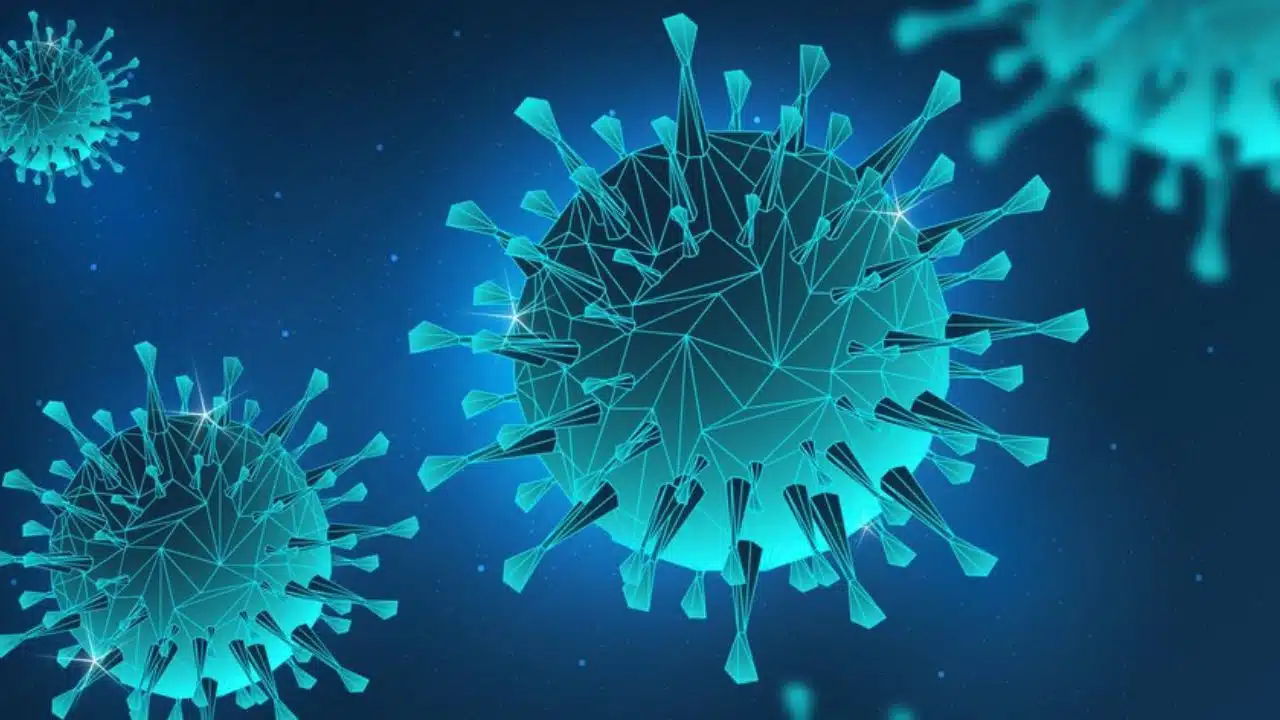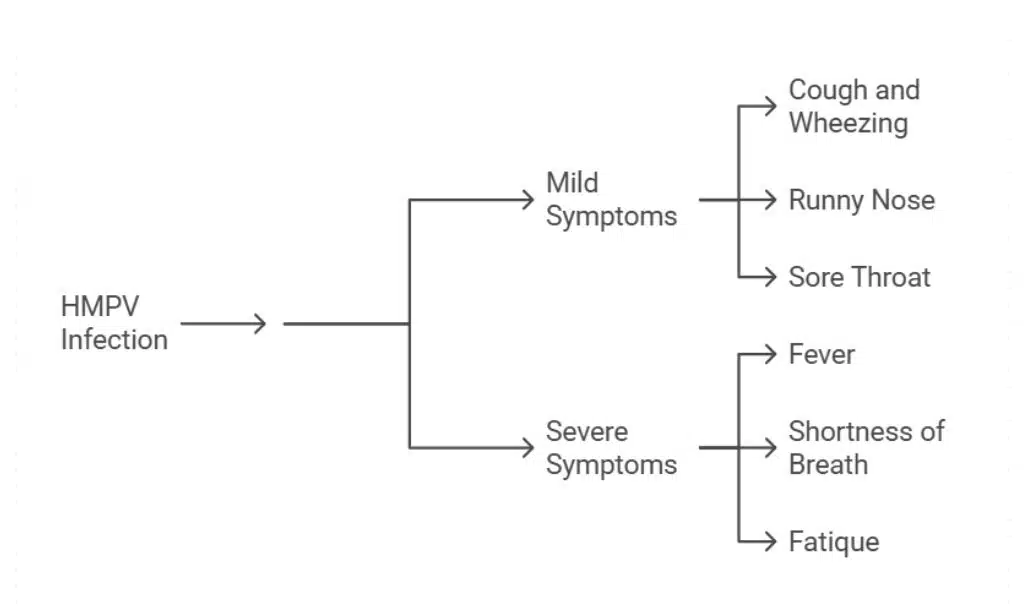Five cases of Human Metapneumovirus (HMPV), a respiratory virus, have been reported in India across three states: Karnataka (two cases in Bengaluru), Gujarat (one case in Ahmedabad), and Tamil Nadu (two cases in Chennai and Salem). This comes amid increasing global concerns, as China has reported a significant surge in HMPV and other respiratory illnesses. While the Indian government has assured the public that the situation is under control, heightened awareness and precautionary measures are being recommended.
HMPV Cases in Bengaluru: Infants Recovering From Respiratory Illness
In Bengaluru, two infants—a three-month-old girl and an eight-month-old boy—tested positive for HMPV. Authorities clarified that neither child had a history of international travel, ruling out the possibility of an imported strain.
The three-month-old girl has since recovered and been discharged from the hospital. The eight-month-old boy, who was diagnosed more recently, is also recovering well and expected to be discharged soon. Both infants had a history of bronchopneumonia, a condition characterized by inflammation in the bronchi and alveoli of the lungs, which can lead to respiratory distress.
Ahmedabad Reports HMPV in Two-Month-Old Baby
In Ahmedabad, Gujarat, a two-month-old baby from Rajasthan’s Dungarpur district was diagnosed with HMPV. The infant was brought to Ahmedabad for treatment and is currently stable under medical care at a private hospital. The family’s prompt decision to seek advanced treatment has likely contributed to the baby’s recovery trajectory.
Tamil Nadu Confirms Two Cases of HMPV
Tamil Nadu health authorities confirmed two cases of HMPV—one in Chennai and another in Salem. Both individuals are stable and under close observation. The state government emphasized that adequate monitoring and care are in place to ensure no complications arise from these cases.
Understanding Human Metapneumovirus (HMPV)
What is HMPV?
Human Metapneumovirus is a respiratory virus first identified in 2001 in the Netherlands. It spreads through respiratory droplets, making it transmissible through sneezing, coughing, or close contact with infected individuals. The virus typically thrives during colder months, especially in winter and early spring.
Who Does It Affect?
While HMPV can infect people of all age groups, it poses a higher risk to certain vulnerable populations, including:
- Young children, particularly those under 11 years old.
- Elderly individuals.
- People with compromised immune systems.
Symptoms of HMPV:
The symptoms of HMPV range from mild to severe, depending on the patient’s age and overall health. Common symptoms include:
- Cough and wheezing.
- Runny nose.
- Sore throat.
- Fever.
- Shortness of breath.
- Fatigue.
In severe cases, especially in young children or immunocompromised individuals, the virus can cause complications such as bronchopneumonia or severe respiratory distress, requiring hospitalization.
India’s Surveillance Efforts: HMPV Not New but Under Monitoring
Union Health Minister JP Nadda has assured the public that HMPV is not a new virus. It has been in circulation globally since its discovery in 2001 and has been present in India for several years. Routine surveillance by the Indian Council of Medical Research (ICMR) identified these recent cases as part of its ongoing efforts to monitor respiratory illnesses across the country.
The Health Ministry clarified that HMPV is less transmissible than COVID-19 and does not pose the same level of public health threat. It added that most cases are mild and self-limiting, requiring only symptomatic treatment and no hospitalization in the majority of cases.
In November 2024, a six-month-old baby in Kolkata tested positive for HMPV, further indicating the virus’s established presence in India.
Preventive Measures: Public Advised to Stay Vigilant
To prevent the spread of HMPV, the Union and state governments have issued several advisories emphasizing personal and public hygiene. The key preventive measures include:
- Wear Masks in Crowded Places
Masks help reduce the risk of transmitting or contracting respiratory infections in crowded areas. - Practice Cough and Sneeze Etiquette
Cover your mouth and nose with a tissue or elbow when coughing or sneezing. Dispose of used tissues properly. - Wash Hands Frequently
Regular handwashing with soap and water or the use of alcohol-based hand sanitizers is essential. - Avoid Public Places if Symptomatic
People with symptoms like cough, cold, or fever are advised to avoid public gatherings. - Avoid Sharing Personal Items
Items like towels, linens, and utensils should not be shared to minimize the spread of infection. - Stay Hydrated and Eat Healthy
Maintaining good hydration and a nutritious diet can strengthen the immune system.
Additionally, Karnataka has advised parents not to send children to school if they show even mild symptoms of respiratory illness. Hospitals have been directed to maintain detailed records of Severe Acute Respiratory Infection (SARI) and lab-confirmed influenza cases to ensure accurate monitoring and response.
Global Concerns: HMPV Surge in China
India’s HMPV cases come at a time when China is reporting a surge in respiratory illnesses, including HMPV. Chinese authorities have initiated a pilot monitoring system to track winter illnesses, including cases of pneumonia of unknown origins.
The World Health Organization (WHO) is closely monitoring the situation in China and providing updates to countries, including India. The Union Health Ministry has reassured the public that India’s surveillance systems are robust and capable of responding promptly to any developments.
Karnataka, Tamil Nadu, and Maharashtra Step Up Preparedness
Karnataka has taken proactive measures following the detection of two HMPV cases in Bengaluru. Health Minister Dinesh Gundu Rao stated that the government is coordinating with ICMR and the central government to monitor the situation. Chief Minister Siddaramaiah emphasized that all necessary precautionary measures are being implemented.
In Tamil Nadu, health officials are closely monitoring the two reported cases and conducting regular reviews.
Although no cases have been reported in Maharashtra, the state government has issued an advisory urging citizens to follow hygiene practices to prevent any outbreak.
India’s Preparedness for Respiratory Illnesses
A nationwide preparedness drill conducted recently showed that India is well-equipped to handle any potential increase in respiratory illnesses. The Union Health Ministry highlighted that public health measures can be deployed promptly if needed.
ICMR continues to track trends in HMPV and other respiratory viruses throughout the year. Surveillance data is being analyzed to ensure that any unusual trends are identified and addressed early.
Stay Informed and Practice Preventive Measures
While the detection of HMPV cases in India has raised concerns, health experts emphasize that the virus is not a new threat and most cases are mild. By following simple preventive measures like wearing masks, maintaining hygiene, and avoiding public places when symptomatic, individuals can significantly reduce the risk of transmission.
India’s health infrastructure and surveillance systems remain vigilant, ensuring that any potential outbreaks are managed effectively. Stay informed through credible sources and adhere to health advisories to protect yourself and your loved ones.





































